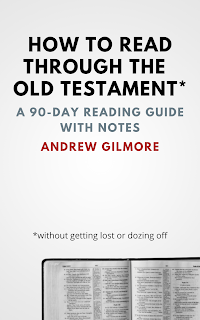Maybe this is why they were such jerks.
 |
| Matheus Ferrero |
JOB'S FRIENDS SAID some pretty dumb things.
One guy, Eliphaz, said:
Are the comforts of God too small for you,
or the word that deals gently with you?
Job 15:11
This was after Job lost everything and developed painful sores all over his body. That would be a bit like heading to a hospice facility to lecture the patients on time management skills.
Another friend, Bildad, said:
You who tear yourself in your anger,
shall the earth be forsaken for you,
or the rock be removed out of its place?
Job 18:4
Bildad accuses Job of selfishness for wanting an audience with God and some answers for his plight. It's not unlike claiming of someone, "He thinks he is the center of the universe."
Zophar said:
God exacts of you less than your guilt deserves.
Job 11:6
Though Solomon had yet to be born, these guys read like fellows who only consulted Proverbs: you always reap what you sow, here and now on this earth. Therefore if your children die and raiders destroy all of your property and agonizing sores appear all over your body, you must have done something to anger God.
What other explanation could exist?
And yet, while they all inserted their collective feet into their mouths, it seems to me these friends did genuinely care about Job.
First, they traveled from their homes so that they could "show him sympathy and comfort him" (Job 2:11). Job's demise was so dramatic, so devastating, that news came to Eliphaz, Bildad, and Zophar in their homelands. And upon hearing of the downfall of their friend, they loaded up their camels so they could visit and give comfort to their friend.
As they got near, they didn't recognize Job. And when they understood that the despondent, disheveled and despicable looking character was the shell of their friend, they tore their clothing, threw dust in the air, and wept.
When they reached Job, they sat on the ground with him in silence for seven days.
These aren't the behaviors of heartless narcissists, but rather of caring and concerned individuals.
But so what? Why should we care whether these men cared for Job or not? After the seven days, they proceeded to rebuke Job with every possible judgment. So does it even matter that they wept and tore their clothes and sat with Job?
I think it does matter. Here's why.
That Job's friends genuinely cared about Job, but still judged him so harshly, can teach us all an important lesson. They wanted and needed to make sense of the world around them so badly they were willing to sacrifice their friend in order to make his circumstances fit the mold of their worldview.
How often do we do the same? We perceive the world a certain way. We have a notion of the way things ought to be and of what is fair and unfair in the world around us. As a result we filter and skew events to fit into the box we've constructed for the world. We have such a strong need to understand why things occur that we're willing to sacrifice just about anything--including friendships--to hold onto that worldview.
Don't get me wrong. We should remain firm in our adherence to orthodoxy. These critical tenets define what it means to be human, right and wrong, and the nature of God. But we should not allow ourselves to be so overconfident that we then claim to speak for God as Job's friends did. They may not have known Job's sins, but they were sure he had some. Why else would he be suffering so?
God is much bigger than our finite minds can comprehend, so to pretend we understand his ways or thoughts would be comical were it not so dangerous.
We must hold fast to the things we know to be true, but humble enough to know that even a lifetime of study cannot permit us even to begin to grasp the nature of God. It's okay to say, "I don't know."
Whether by pride or by fear, sadly Job's friends just couldn't bring themselves to say those three words.
If you'd like to learn more about Job in the context of the entire Old Testament, you might be interested in my curated, chronological Old Testament reading plan with notes. I've combed through the first portion of the Bible and selected the most critical chapters for your perusal.
Whether you've read through the OT before or always get stuck at Leviticus, this guide will help you gain a deeper understanding of God's word as a whole.
The guide is free if you want it. It will only cost you your email address, but you can unsubscribe from the list at any time with one click. Just enter your email address below, and I'll send the reading guide your way.


No comments:
Post a Comment